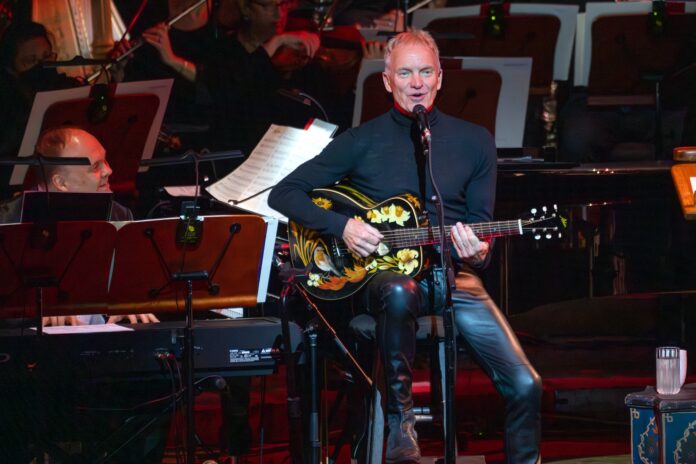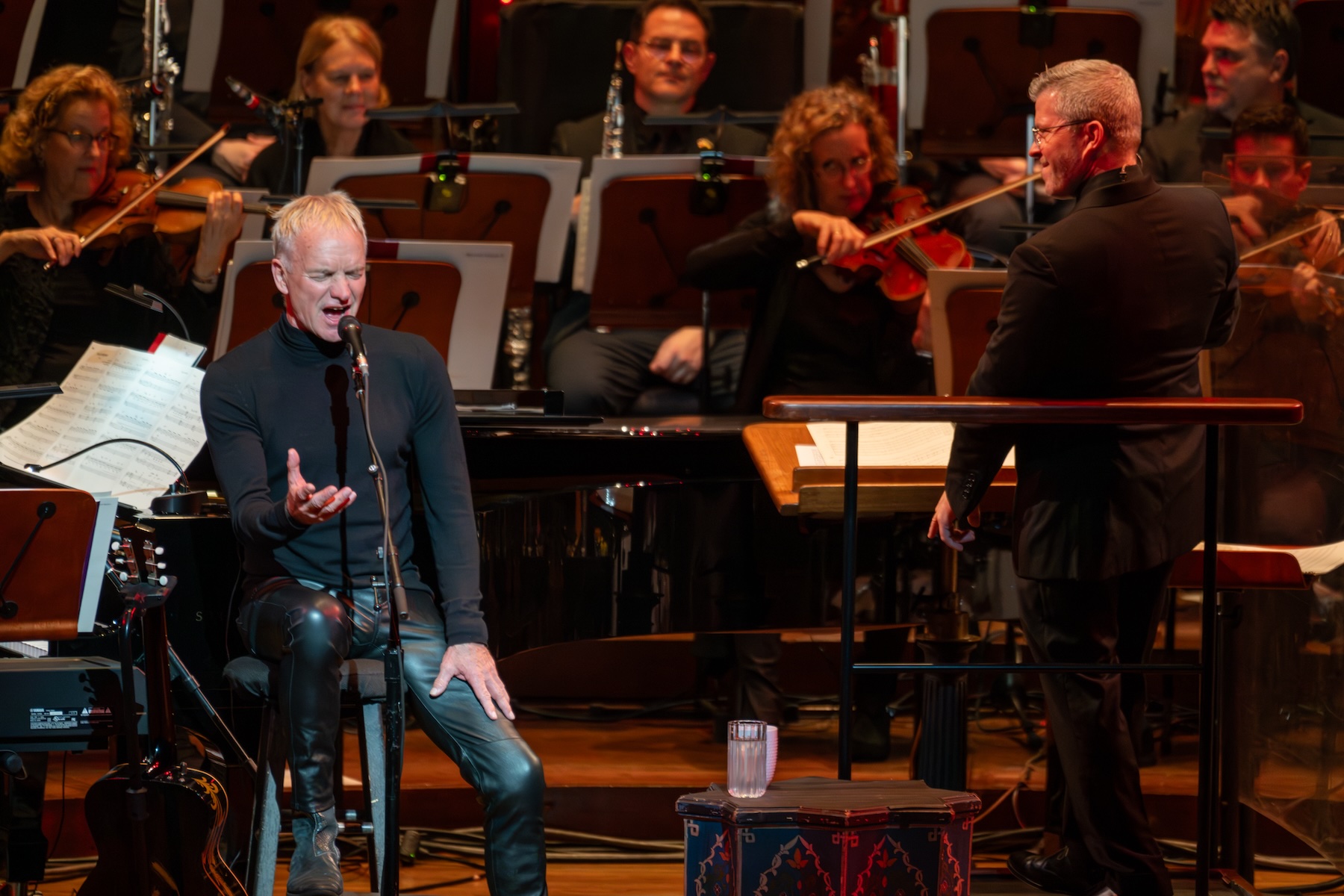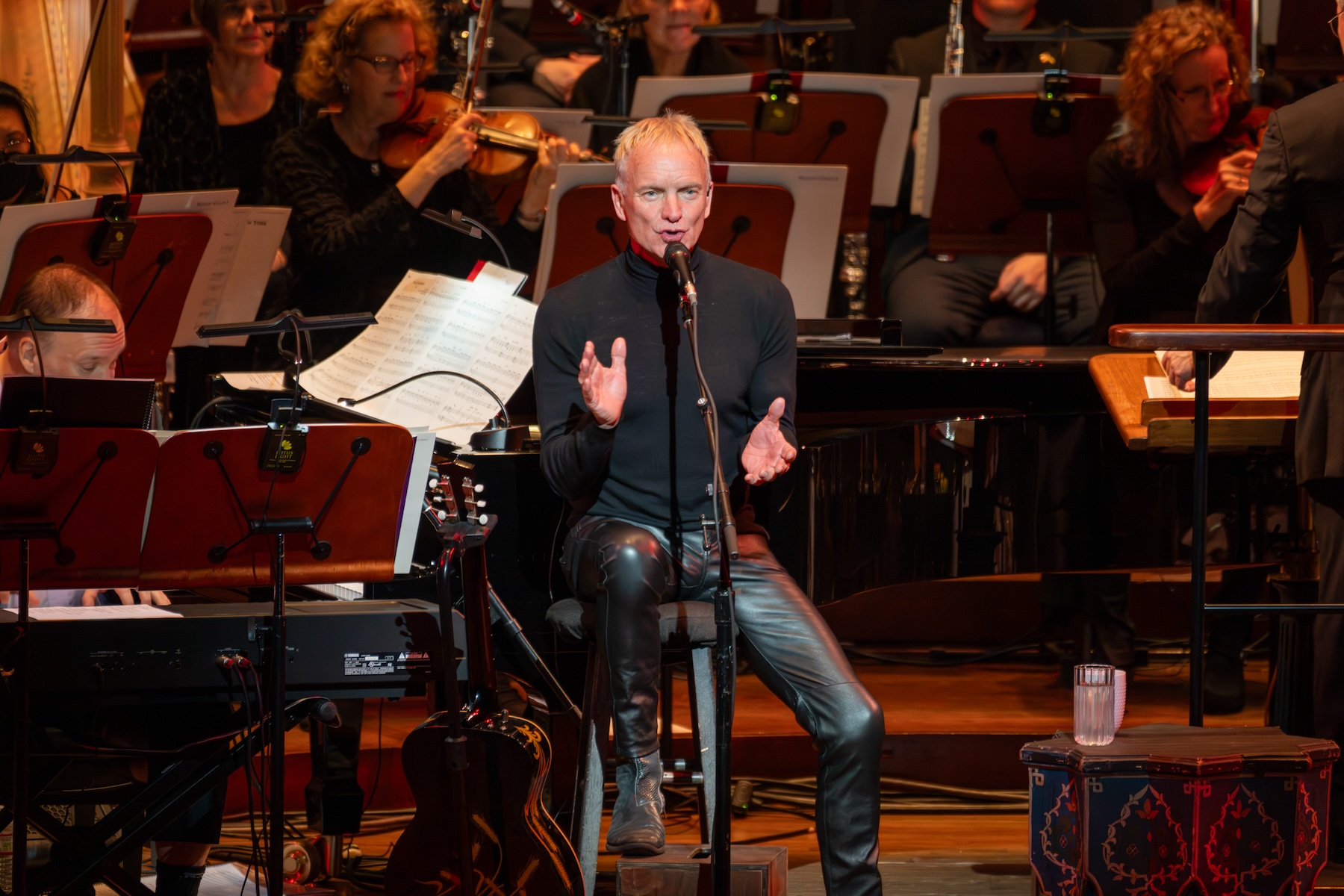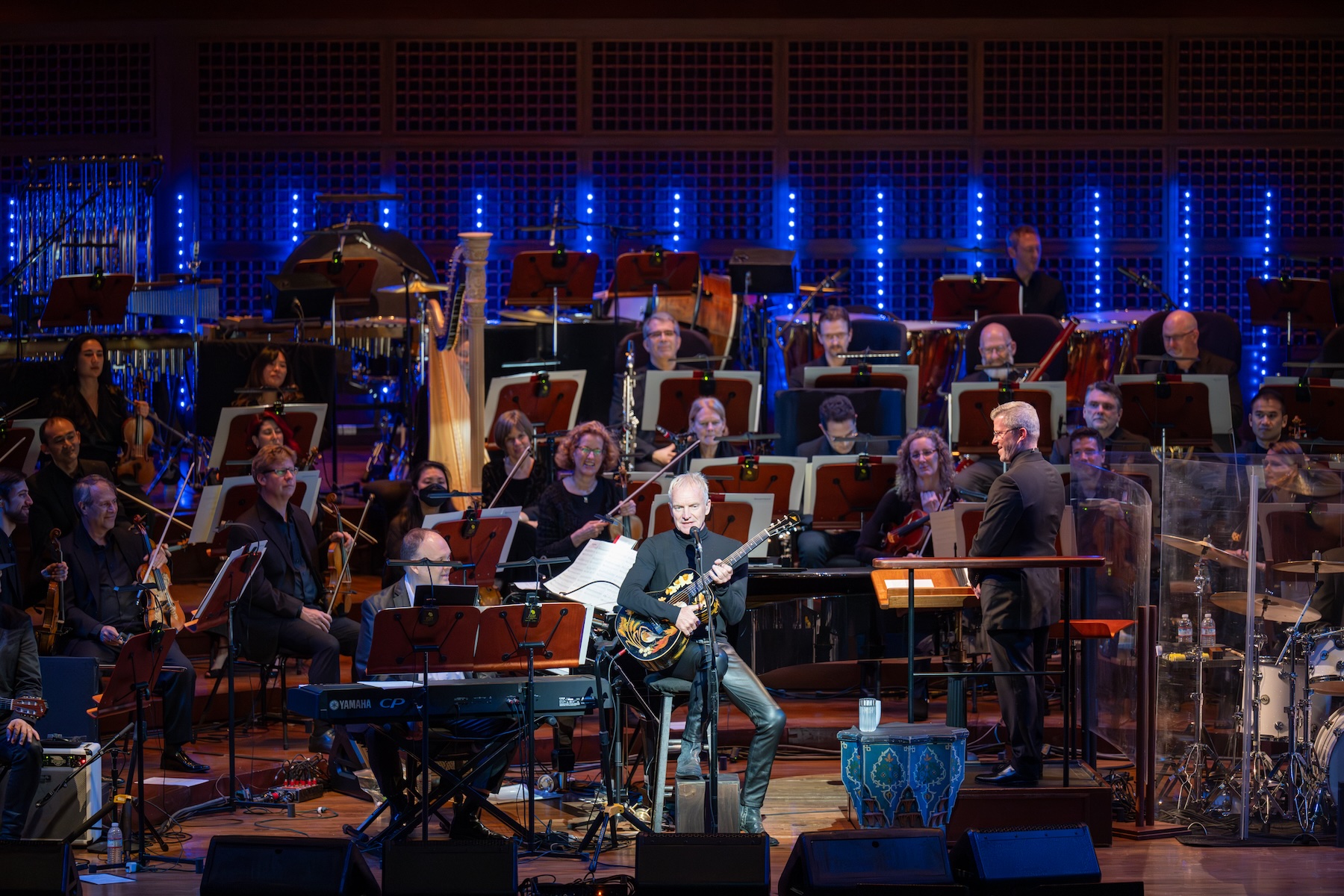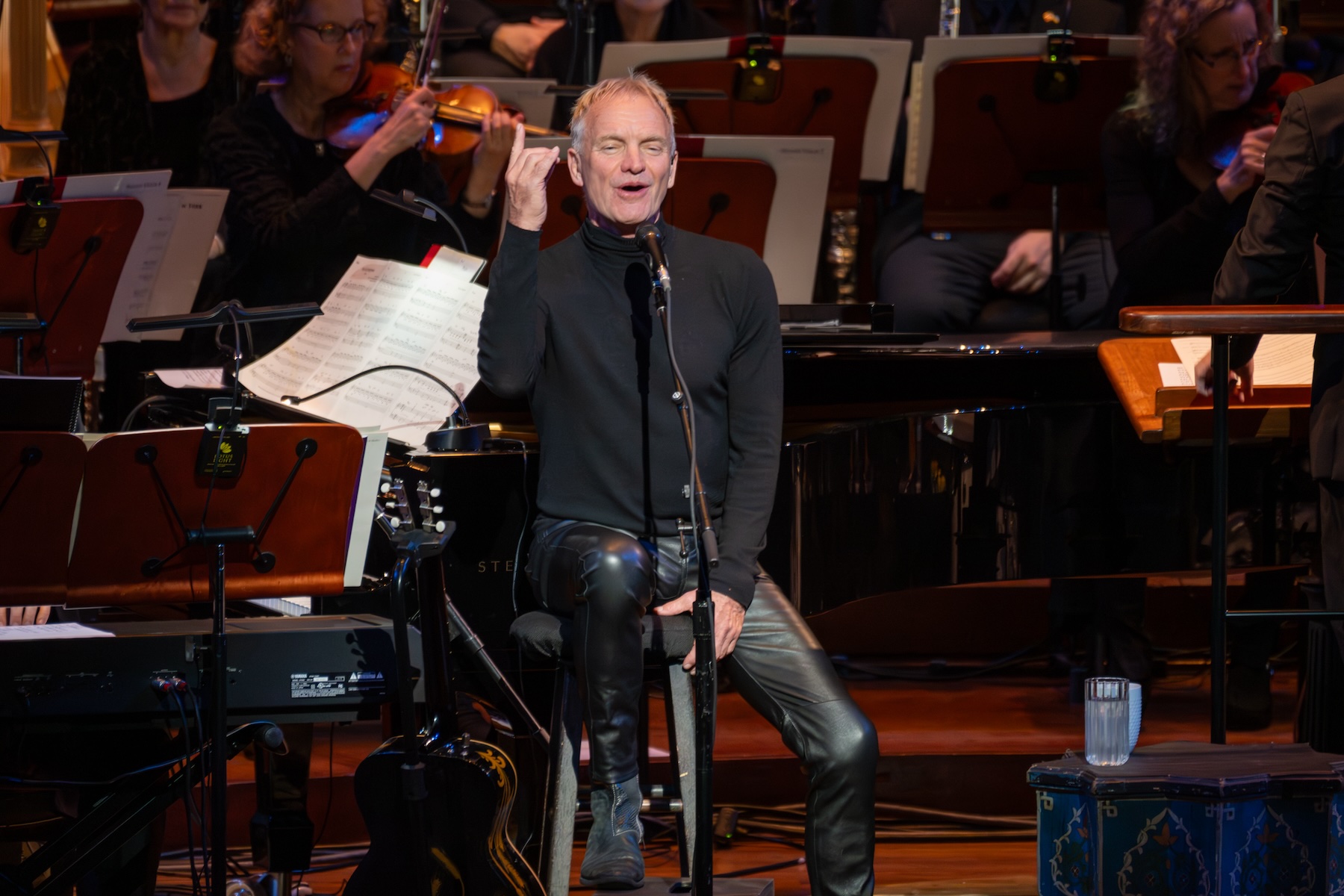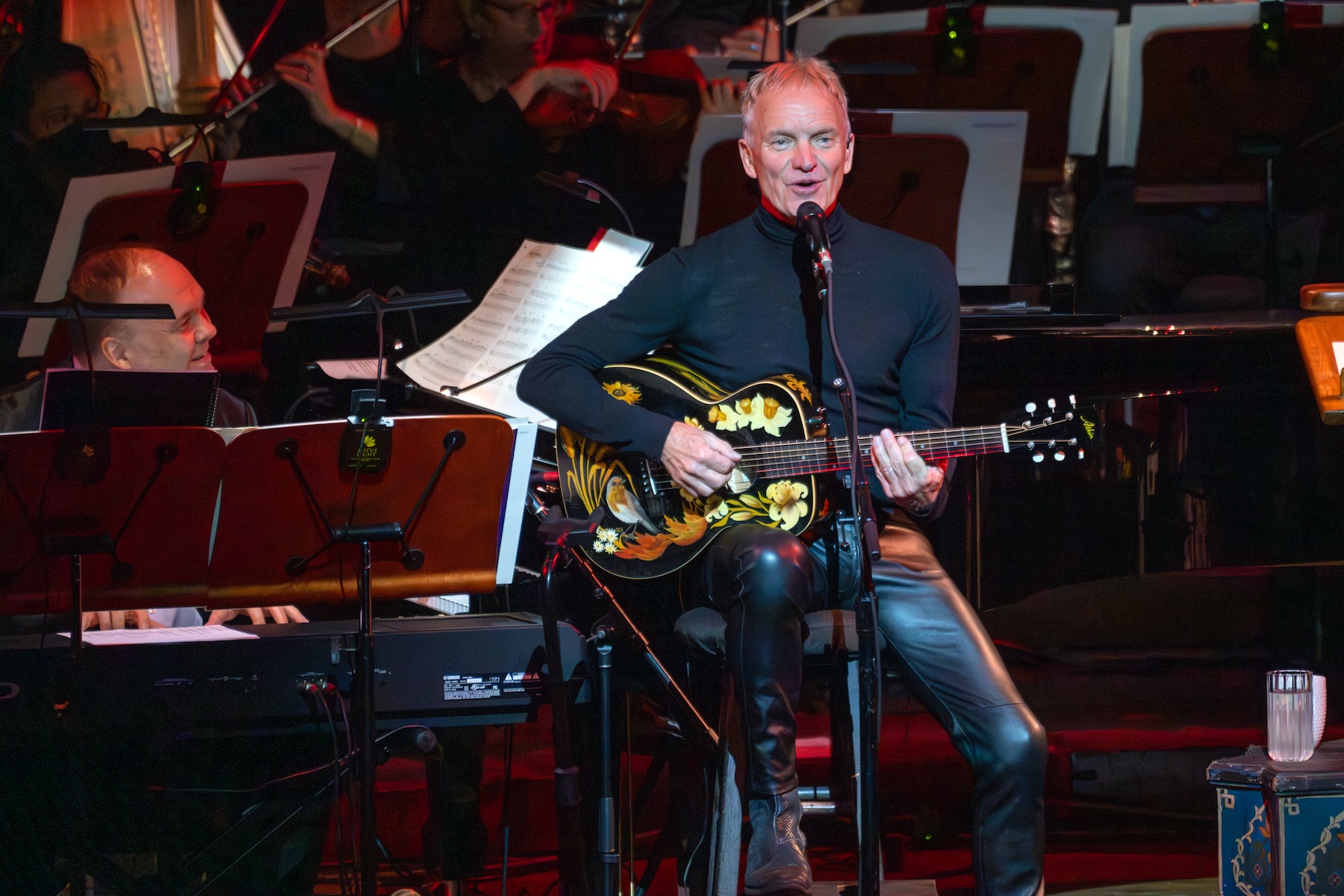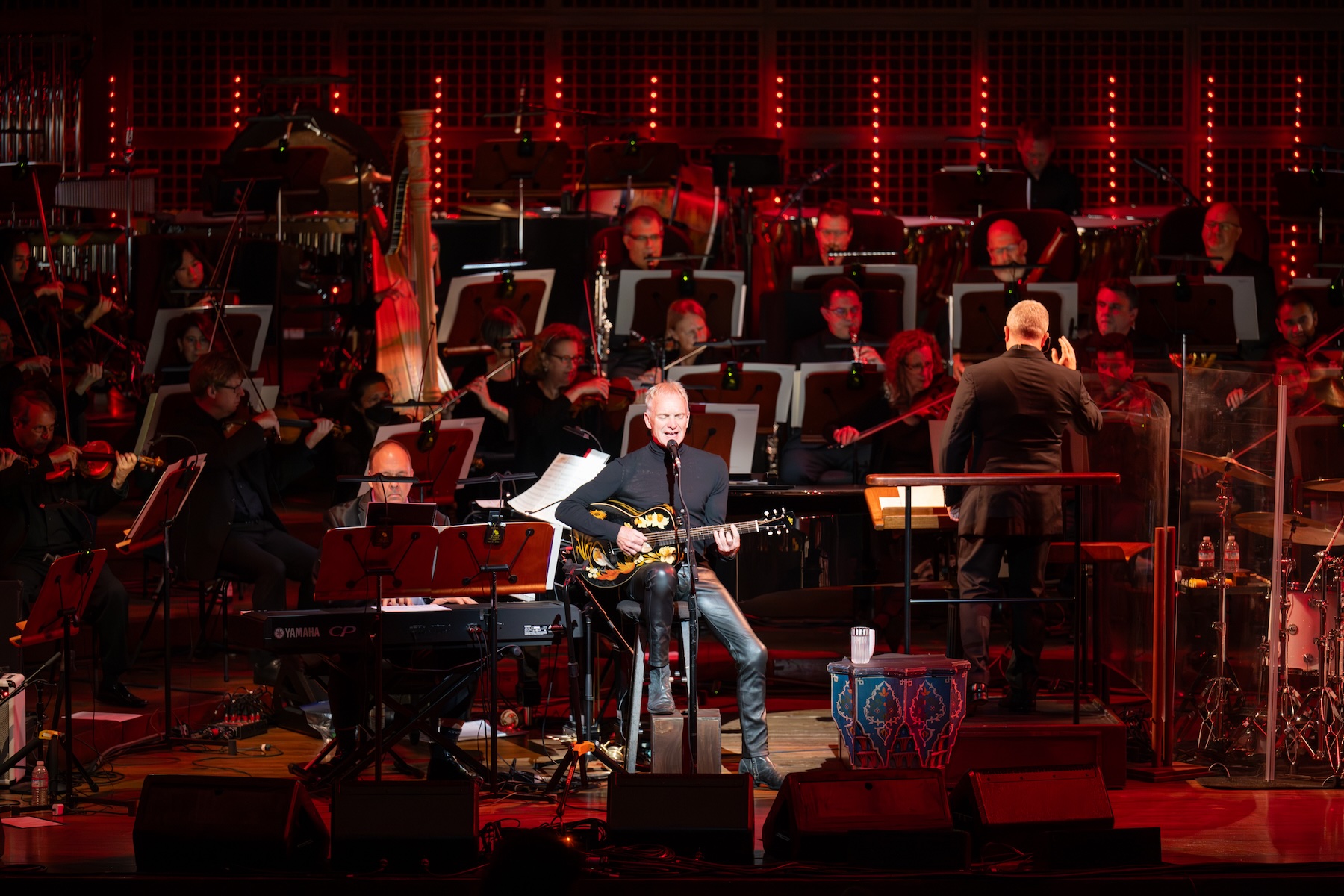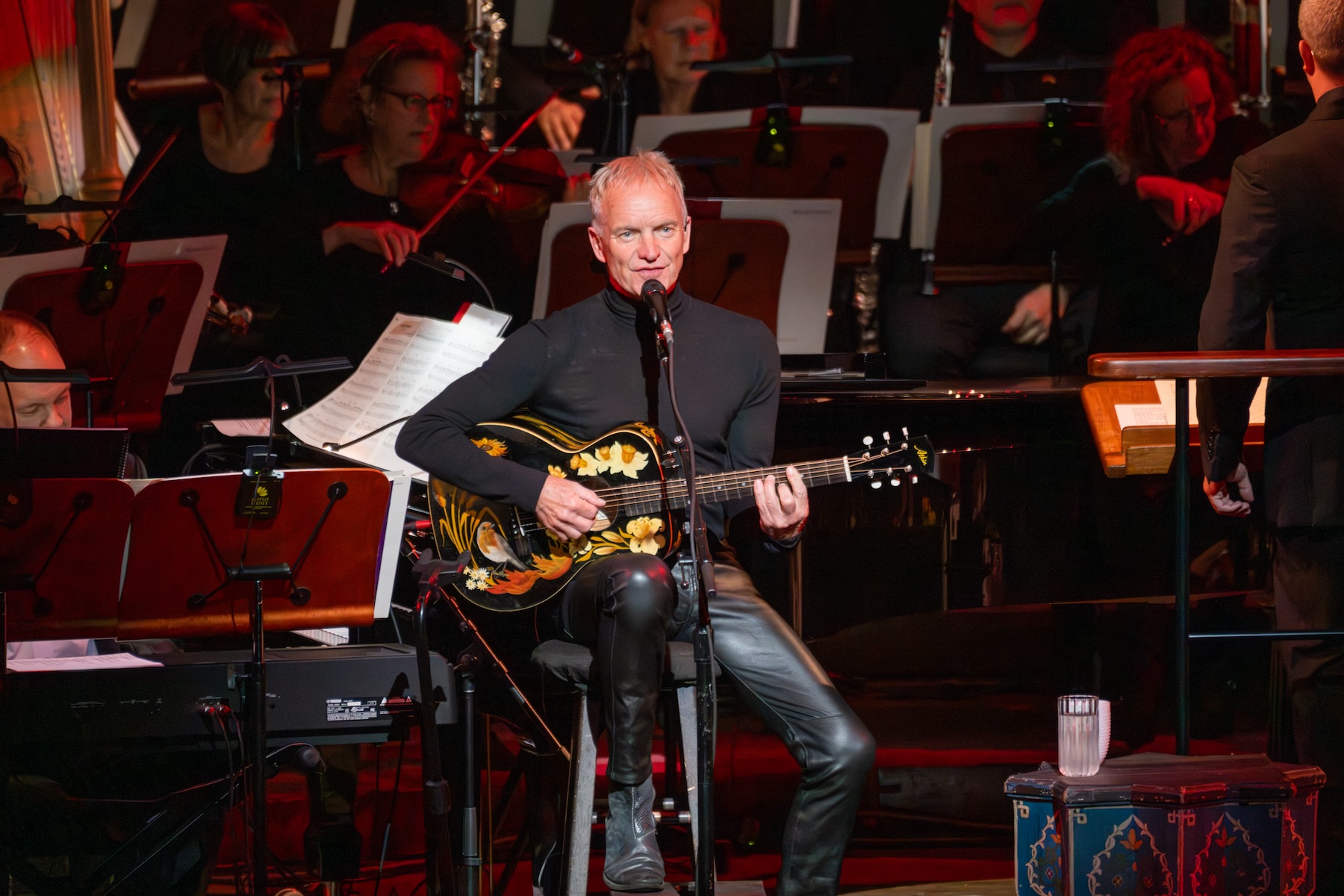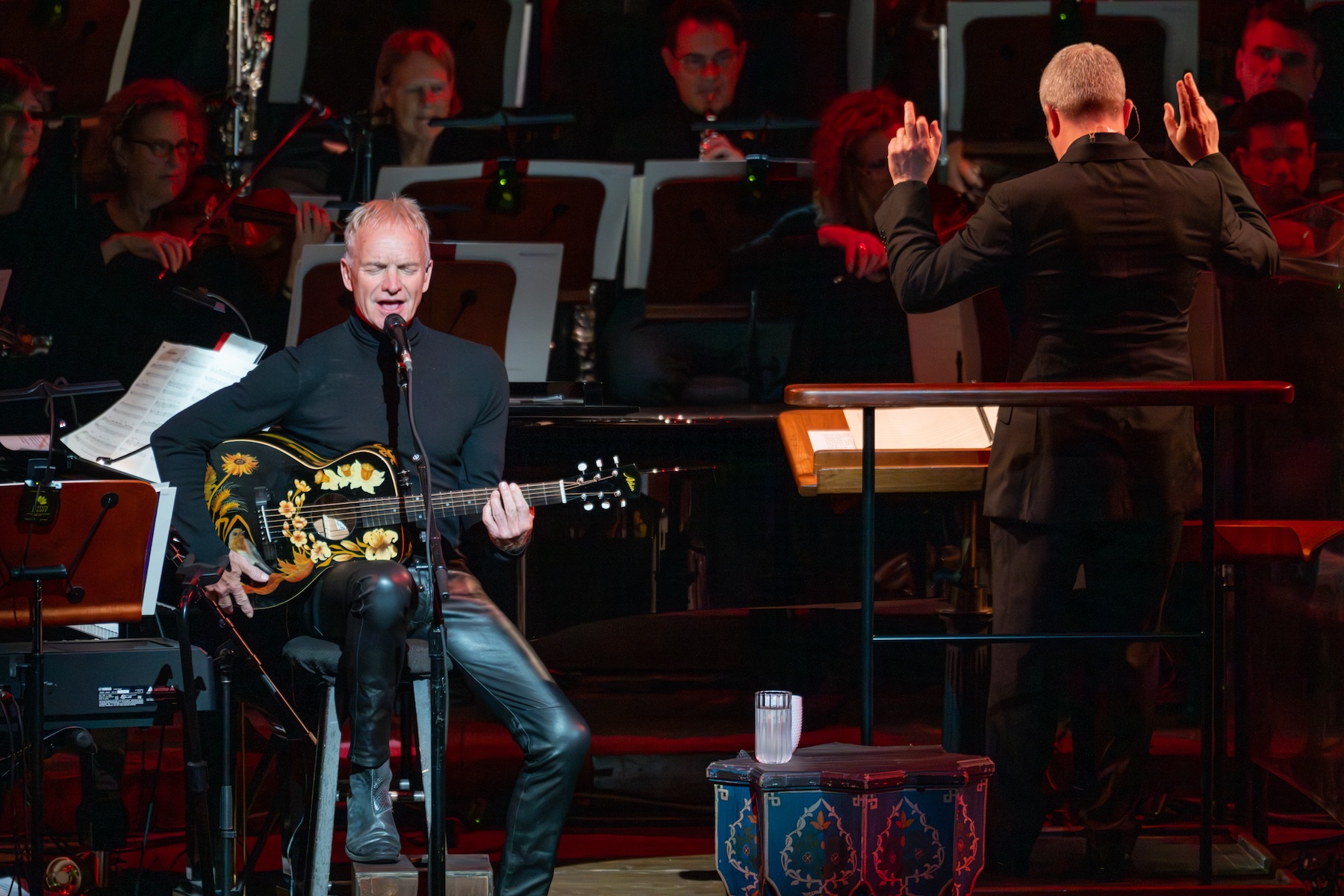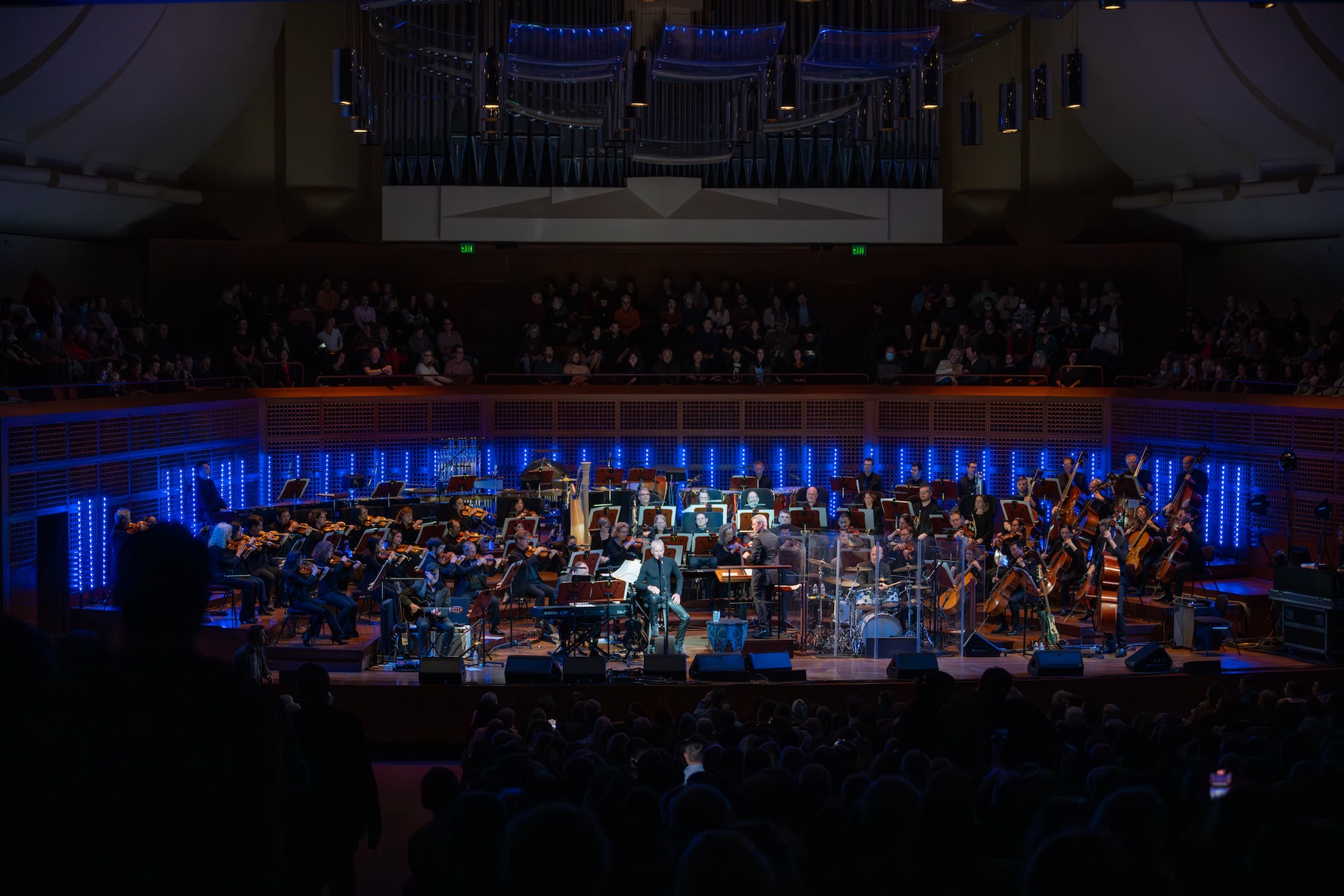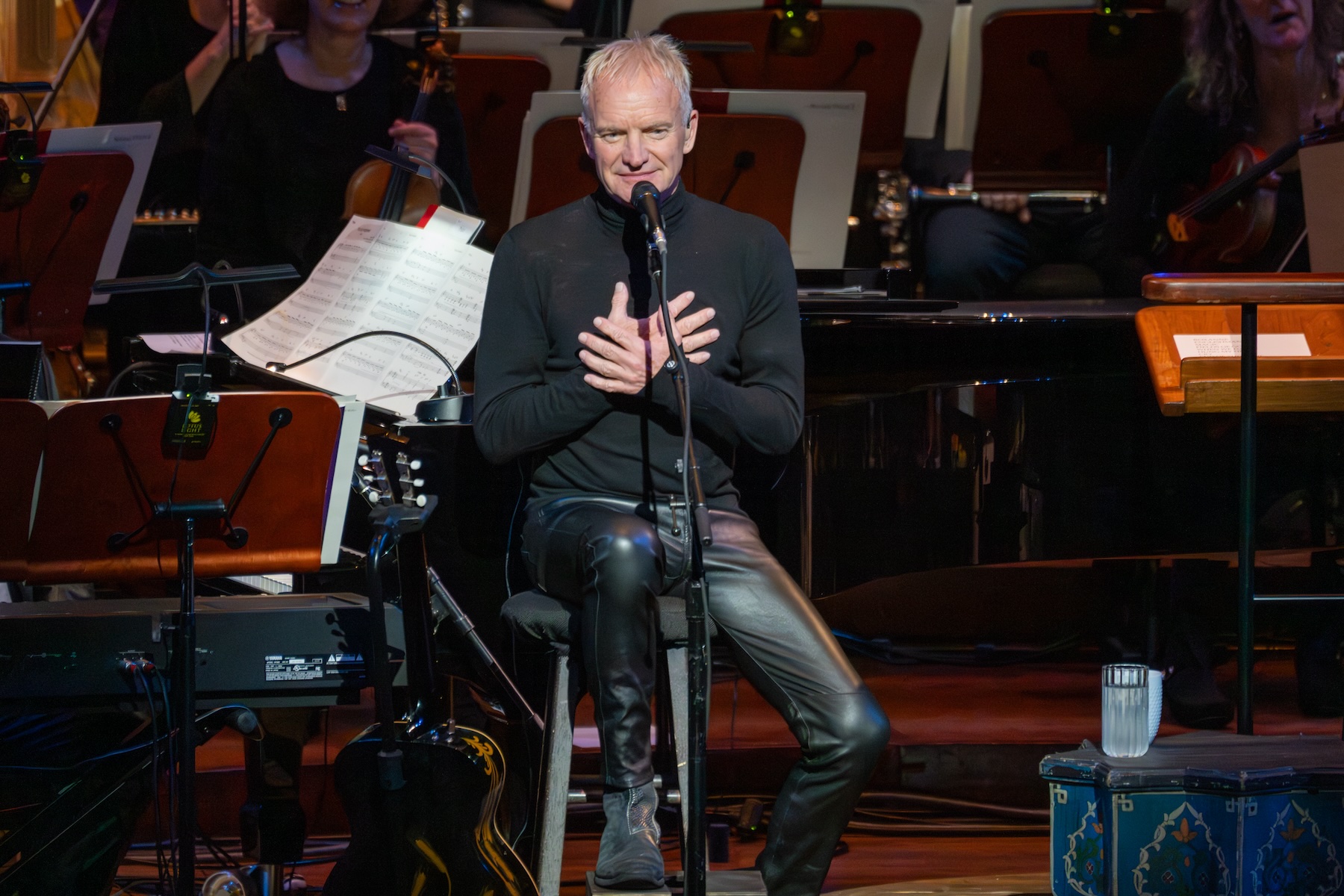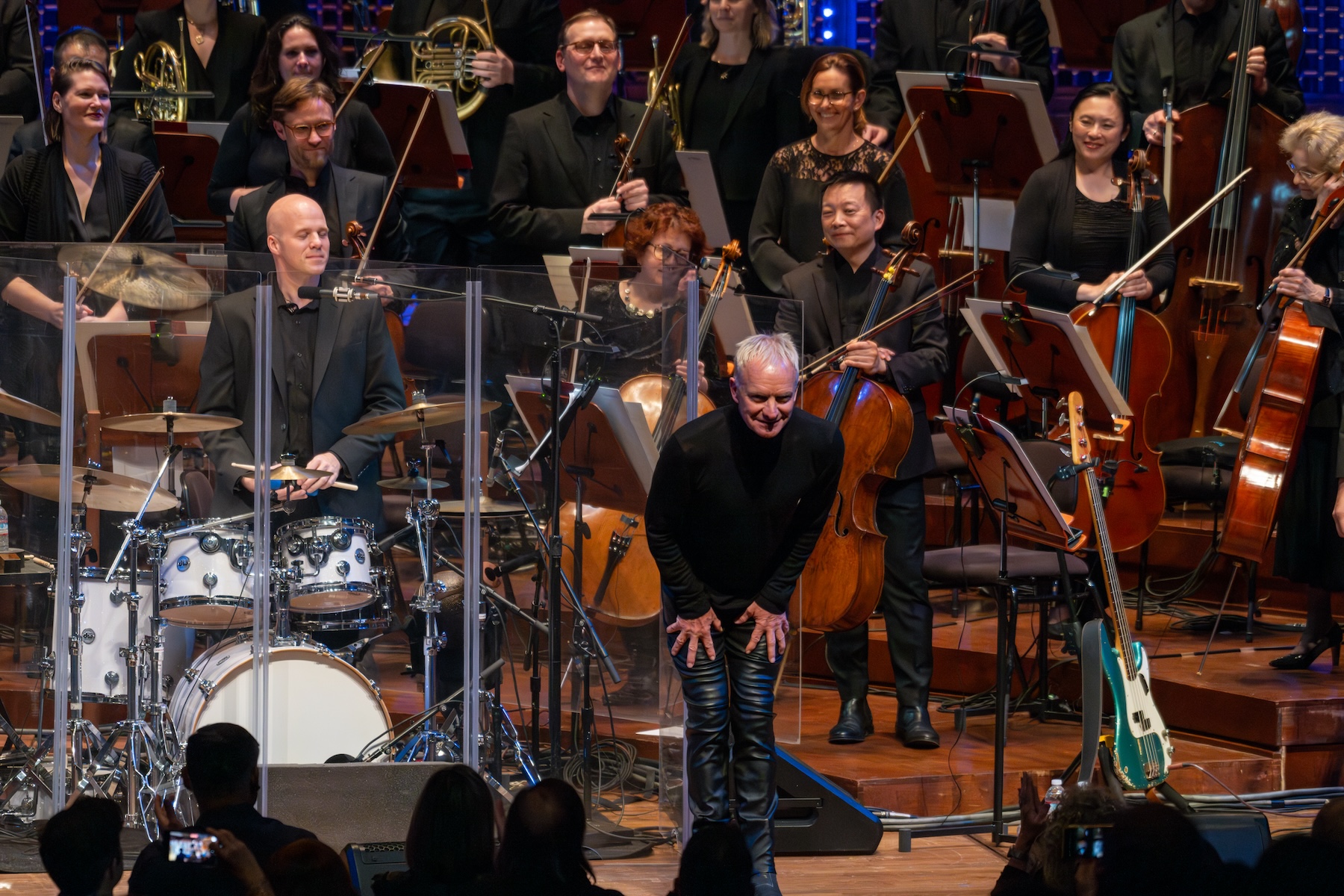Wednesday night was special.
This photographer has seen Sting perform many times over the years. With many different bands. Supporting many different albums. But Wednesday—Valentine’s Day, with wife Trudie Styler in the audience—Sting and The San Francisco Symphony took the audience on a singular, grand tour of a legendary career.
The music was re-imagined and re-composed for the event, which elevated his familiar voice to new heights, with all of the grandeur that a great symphony can. The audience was treated with new insights into Sting’s life, the songs, and his views. Despite the cold, rainy gloom outside, Davies Symphony Hall was warm and cozy.
Sting hit the stage with conductor Edwin Outwater to the applause of a loving crowd of fans, and welcomed everyone to the show. He started telling stories about the early days of The Police and the genesis of his first song, “Roxanne.” He then went on to play hits like “Englishman In New York,” “Fields Of Glory,” and “Why Should I Cry For You?”
Before playing “When We Dance,” he talked about his song creation process. How themes like “I love you, and you love me” are virtual dead-ends, whereas “I love you and you love someone else,” now, “that gets interesting.” At the end, Sting held the notes for “I had a dream last night…” for 30 seconds while the symphony played soaring notes that raised the intensity of his falsetto tone.
He next discussed his two childhood dreams: One was to be a musician, the other was to be a cowboy, inspired by TV shows “Rawhide,” “Maverick,” and “Bonanza.” He played “I Hung My Head” which took on new meaning with that backdrop.
Later, Sting talked about the relationship of fathers to sons and how his own father gave him one piece of advice: Go to sea, see the world, and make something of yourself. He joked that of course, he disappointed him on that last point. This story helped bring new meaning to “Why Should I Cry For You?”
His distain for fox hunting came up—he joked that an unfortunate experience of a fox killing all of his chickens made him re-evaluate his view on this sport. And he played his wife Trudie’s favorite song, which he dedicated to her, “The End Of the Game.”
After a brief intermission, Sting discussed the theme of “The Shape Of My Heart,” about a gambler who is also a philosopher (“Aren’t they all at some point?” he laughed.) He then played three songs from his play The Last Ship, which was cancelled in San Francisco at the beginning of COVID: “The Last Ship” (sung in his natural dialect—a strong British accent—with acoustic guitar); a song about an older suitor in the play (he mentioned that his age was around Joe Biden’s), “Practical Arrangement”; and a song about the younger, more virile suitor, “What Say You, Meg?”
“I would vote for Joe Biden’s Alsatian over Donald Trump,” he said during a portion where he touched on his political leanings, to which the San Francisco audience, of course, thunderously agreed.
Other musical moments: Debut “What Could Have Been,” accompanied by a beautiful violin solo by Wyatt Underhill, followed by “Russians,” “King Of Pain,” and “Every Breath You Take.”
For encores, there were “Desert Rose,” which was particularly beautiful with the symphony, and “Fragile,” after he described the film his wife is making about Naples, Italy—and how a local priest featured in the film, Don Antonio, asked Sting to perform at the local prison, with a guitar made from colorful blue and red wood recovered from fishing boats and refugee boats that had washed ashore.

